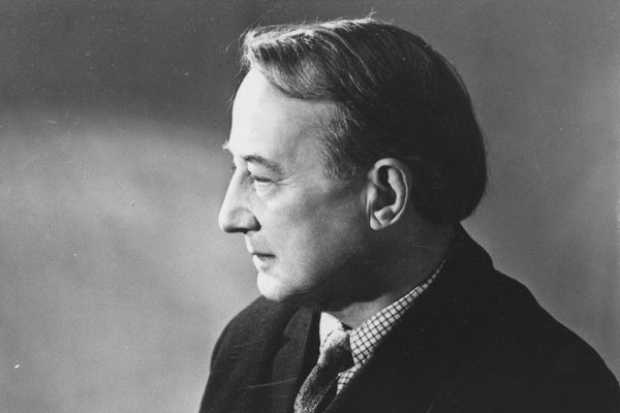Who or what was Michael Oakeshott? How many of our fellow citizens — how many even of the readers of this journal — could confidently answer the question? I guess, not many.
One of the paradoxes of Britain’s intellectual history is that a country which, alongside the Greeks and the Germans, has contributed more than any other to
philosophical inquiry is extraordinarily uninterested in its own philosophers. A million people are said to have crowded the streets of Paris to see the funeral procession of Jean-Paul Sartre. In Scandanavia, Kierkegaard is a household name. In Germany, Heidegger is as well known as Thomas Mann. But in Britain no one has heard of Oakeshott — a philosopher who ranks with Sartre, Kierkegaard and Heidegger.
Like Wittgenstein, his even more intellectually powerful near-contemporary in Cambridge, Oakeshott’s idiosyncratic style matches an idiosyncratic (and truly interesting) cast of mind. His distinctive contribution came in two related insights — one in epistemology, the other in political theory.
In epistemology, he disdained dry inquiry into sense-data, truth-conditions and the rest of the usual apparatus of modern analytical philosophy, and concentrated instead on the ways in which knowledge is actually acquired — through history, science, poetry, practical wisdom and so forth. He argued that each of these points of view constitutes an ‘arrest’ from which the infinite, kaleidoscopic continuum of the universe can be seen in a partial way. It follows that none of these ‘modes of experience’ is intrinsically truer or less true than the others — and that truth is therefore a characteristic which can attach only to an utterance within a specific mode of thought.
Likewise, in political theory, he disdained the usual dry discussion of rights and duties, and asked instead what characteristics are required by the modern state if it is to enable people to live in liberty together. His answer is that the modern, liberal state must be conceived not as an ‘enterprise association’ with a specific concrete aim, but rather as a ‘civil association’, where conduct is governed by ‘adverbial conditions’, the sole purpose of which is to permit people to live together in liberty.
The Notebooks, whose recovery we owe to the admirably painstaking work of Luke O’Sullivan, do not — it has to be admitted — reveal much about Oakeshott’s philosophy that we did not already know. But, perhaps more importantly, they reveal quite a lot about the man.
Oakeshott’s philosophical eccentricity was matched by eccentricity in many other aspects of his life. He played mah-jong with enthusiasm but refused the winds (or was it the dragons?) because he idiosyncratically conceived them to be inferior. In the same vein, he refused all honours (including the very highest) on the grounds that honours should be awarded to those who want them most. He was as shrewd as the shrewdest street-trader when it came to things like running his beloved department at the LSE; but his private life was notably quixotic. In short, much of his charm lay in his capacity for unexpected romance.
The Notebooks bring out this quality, letting us into some of the smouldering passions that lay behind the extreme delicacy of his conversational manner. There is much reflection on God, and on the history of man’s relation to the numinous in nature. In 1923, we find Oakeshott pondering (over successive days) on the ‘experience of the Red Sea in the history of the Jews’ and on the sea as the symbol of the ‘mightiness of God’. ‘The stars have lost much of their mystery — but who would dare to say that he had discovered the secret of the sea?’
As well as bringing out the romance in Oakeshott’s soul, the Notebooks illustrate very clearly the persistent themes of his mind and the breadth of his interests. As early as 1925 (61 years before his last notebook), he sets out 17 ‘projected labours’, including:
The logic of political philosophy… A work on aesthetic… A work on the nature of religion… A work on historiography treated as a branch of epistemology… A life of Nelson… A work on Balzac.
The Notebooks also illustrate the capacity for aphorism that characterised both his writing and his conversation. Over the course of just a few days in 1958, we find: ‘the victims of activity’; ‘love is our high idea of courage’; ‘the horror of all compulsion’; and ‘the world of art — a world where only the unforeseen can happen and where conduct is understood only by children’.
Just occasionally, in the midst of these distinctive but somewhat inconsequential delights, a phrase emerges that crystallises a great stream of Oakeshott’s thought, reminding us that he was a seriously important protagonist in the history of ideas. In the last entry of 1963, his deepest thought — the concept of civil association — is pithily and memorably summarised: ‘Politics is the art not of imposing a way of life, but of organising a common life… the art of accommodating moralities to one another.’
These Notebooks are not like Wittgenstein’s Philosophical Investigations. They were not intended for others, still less for publication, and they do not constitute the record of an intellectual journey. But Oakeshott did not specialise in great voyages. He preferred instead to rest on what Housman (I think his favourite poet) once called the idle hill of summer. From this pleasing vantage point, he discerned with subtle charm significant features entirely missed by caravans of earnest travellers making their way solemnly but unseeingly across the landscape.






Comments